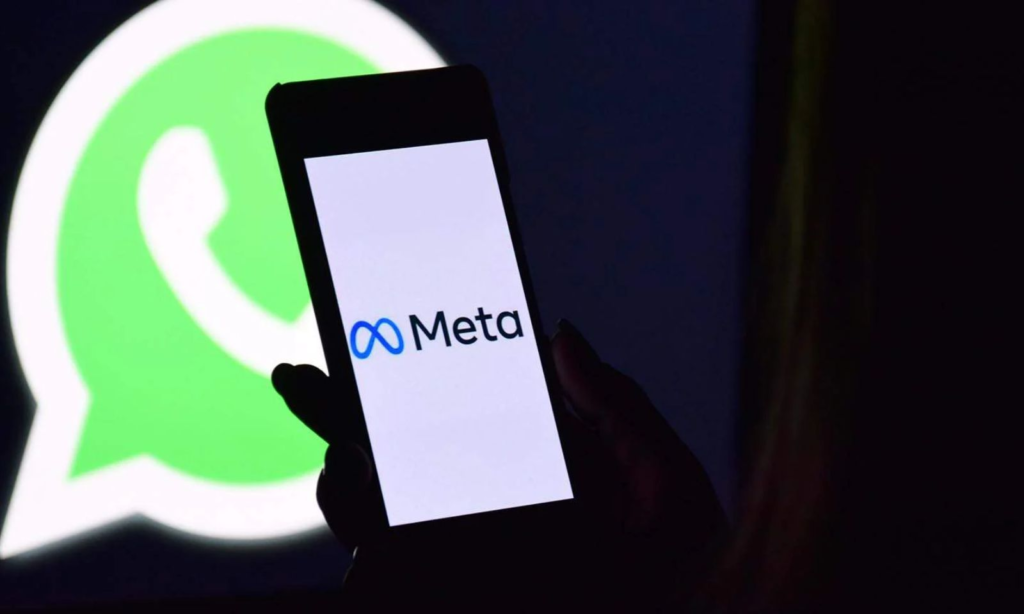In a significant move, the Competition Commission of India (CCI) has imposed a hefty fine of ₹213.14 crore (approximately $26 million) on Meta for violating competition laws with its 2021 WhatsApp privacy policy update.
The policy update, which mandated users to share their data with Meta’s other companies, was found to be an abuse of the dominant position that WhatsApp held in India’s Over-The-Top (OTT) messaging services market.
The decision has sparked discussions on user privacy, data sharing practices, and the role of regulatory bodies in overseeing digital monopolies in India.
The 2021 WhatsApp Privacy Policy Update: A Closer Look
In January 2021, WhatsApp notified its users about an update to its privacy policy. The notification informed users of a change that required them to accept the new terms and conditions, which involved more extensive data collection and mandatory data sharing with Meta’s other platforms.
Unlike previous versions of the policy, which offered users the choice to opt out of data sharing with Facebook, the new update eliminated this option altogether. Users were left with a simple choice: either accept the new terms or lose access to the messaging service.
This “take-it-or-leave-it” approach became a major point of contention. WhatsApp users in India, as well as globally, were faced with a scenario where refusing the new terms would lead to their accounts being suspended, while accepting them meant giving Meta access to more personal data.
Read : Watch How Mark Zuckerberg Celebrates 4th of July Surfing in a Tux, Waving the American Flag
The move drew heavy criticism from privacy advocates, tech experts, and users who felt that WhatsApp was unfairly leveraging its dominant position in the messaging app market.
Read : Mark Zuckerberg Criticised Apple, ‘Meta is Opposite of Apple, We Don’t Wait for Praises’
Meta’s position in India’s OTT messaging services market is undisputed, with WhatsApp being one of the most popular messaging apps in the country. According to data, over 500 million Indians use WhatsApp, making it a key player in digital communication. The issue, however, goes beyond WhatsApp’s massive user base and taps into concerns regarding the control Meta exerts over personal data and its ability to influence user behavior.
The Competition Commission’s Ruling: Meta’s Abuse of Market Dominance
The Competition Commission of India (CCI) conducted an extensive investigation into WhatsApp’s 2021 policy update and concluded that Meta had abused its dominant position in the market.
According to the CCI, WhatsApp had been operating in a manner that contravened the Competition Act of India, particularly under Section 4(2)(a)(i). This section addresses the abuse of a dominant position in the market, including actions that impose unfair conditions on consumers or limit competition.
The CCI’s decision centered on WhatsApp’s imposition of unfair conditions on users by mandating data sharing with Meta’s other services. In essence, users were coerced into accepting a policy that compromised their privacy rights.
By removing the opt-out option and forcing users to share their data to continue using the platform, WhatsApp effectively created a “monopoly-like” situation, where users had limited freedom to choose their messaging platform without surrendering personal data.

The CCI also pointed out that WhatsApp’s privacy policy update was part of a broader strategy to consolidate Meta’s position across various platforms. By mandating data sharing between WhatsApp and other Meta-owned products, the company created an entry barrier for potential competitors in the market, thereby stifling competition and reducing the variety of options available to consumers.
This, in turn, made it harder for new or smaller messaging platforms to establish themselves and compete with WhatsApp on a level playing field.
The Impact on Users and Privacy Concerns
The ruling by the CCI is a significant step towards addressing user privacy concerns in India. Privacy advocates have long raised alarms over the vast amounts of personal data that digital giants like Meta collect from users. With the proliferation of digital services and the growing influence of social media platforms, concerns about the collection and sharing of personal information have only intensified.
One of the primary concerns with WhatsApp’s 2021 policy update was that it failed to provide users with adequate control over their personal data. Data that had previously been optional for sharing with Facebook and other Meta products became mandatory, creating a situation where users either had to accept invasive data practices or face exclusion from the platform.
This policy update brought the spotlight onto the growing tension between user privacy and corporate interests in the tech industry. Meta, like other digital companies, relies on user data to fuel its advertising model.

By sharing user information across its various platforms, Meta is able to build a more complete profile of users, which it then uses to target advertisements. While this model benefits the company financially, it raises concerns about the lack of transparency, the potential for misuse of personal data, and the erosion of user autonomy.
In the wake of the CCI’s decision, many experts have stressed the importance of consumer rights and the need for stronger regulatory frameworks to protect users from such exploitative practices. India’s digital economy is growing rapidly, and with it, the need for clear guidelines around data protection, privacy, and competition has never been more urgent.
Meta’s Response and Future Implications
Meta has, of course, expressed its disagreement with the CCI’s ruling. The company has argued that the privacy policy updates were necessary to enhance user security and comply with evolving global regulations. Meta also stated that it planned to appeal the fine, emphasizing that it had always been committed to transparency and user consent.
However, this ruling is likely to have far-reaching consequences, not just for Meta but for other tech companies operating in India. The fine imposed by the CCI is part of a broader global movement towards greater scrutiny of Big Tech’s practices. In recent years, regulators around the world have begun to crack down on monopolistic practices, data privacy violations, and unfair market behavior by major digital platforms.
The CCI’s decision signals to tech companies that they must be more mindful of local regulations and the concerns of consumers. It also underscores the need for companies like Meta to strike a balance between data collection for business purposes and user privacy.
For Indian users, the ruling provides a sense of relief that their concerns regarding data misuse have been addressed, even though the fine itself is unlikely to dramatically alter WhatsApp’s business model.

Looking ahead, Meta and other companies in India will likely face increased scrutiny regarding their data collection and user consent practices. The digital landscape is changing, and companies must adapt to meet the demands of both regulators and consumers for more responsible data practices.
The ₹213.14 crore fine imposed on Meta by the Competition Commission of India over its 2021 WhatsApp privacy policy update is a landmark decision in the ongoing battle for user privacy in the digital age.
The ruling serves as a reminder of the need for companies to operate transparently, respecting the privacy rights of their users while fostering fair competition in the marketplace.
As India’s digital economy continues to expand, regulatory bodies like the CCI will likely play an increasingly important role in shaping the future of the tech industry, ensuring that user interests are safeguarded in a rapidly evolving digital world.
Meta’s response to the ruling and any subsequent legal challenges will be closely watched, as the company navigates the complex landscape of global data protection laws and regulatory scrutiny.

